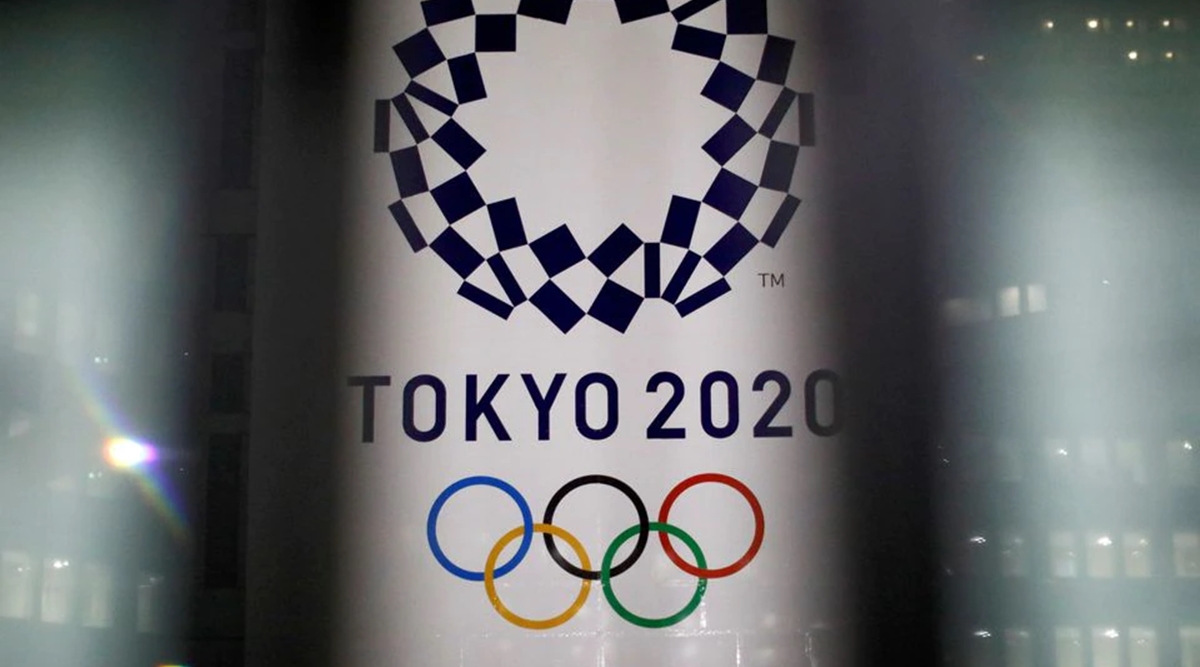 The logo of the Tokyo Olympic Games, at the Tokyo Metropolitan Government Office. (Reuters)
The logo of the Tokyo Olympic Games, at the Tokyo Metropolitan Government Office. (Reuters) The Summer Olympics will open in Tokyo on Friday. Originally scheduled to take place from July 24 to August 9, 2020, the Games were postponed for a year due to the Covid-19 pandemic. With the pandemic still continuing and expanding in parts of Asia, the Games will bring together about 11,500 athletes and 79,000 overseas officials, journalists and support staff — and no spectators.
Should the Games go on? A petition on change.org started by Kenji Utsunomiya, a lawyer, has garnered about 4,58,000 signatures to “cancel the Tokyo Olympics to protect our lives”. Over 6,000 doctors representing the Tokyo Medical Practitioners Association have also called for the Games to be cancelled. In a poll of Japanese voters by Asahi Shimbun, one of Japan’s largest newspapers, 62 per cent of respondents said the Olympics should be postponed or cancelled.
By July 20, Japan had reported 8,44,014 confirmed cases and 15,060 Covid-19 related deaths from four progressively bigger waves of infection. These waves peaked on April 15, 2020 (545 daily cases), August 8, 2020 (1,362 daily cases), January 12, 2021 (6,392 daily cases) and May 14, 2021 (6,460 daily cases). Infections in Japan have been increasing over the past four weeks. The 1,428 average daily cases on June 21 have more than doubled to 3,116 a month later. This is already 48 per cent of the highest average daily cases in Japan since the start of the pandemic last year.
Through the first three waves of infection, the virus circulating in Japan carried a D614G mutation in the spike protein (called B.1). At the peak of the fourth wave, 91 per cent of infections were of the Alpha variant, with only 3 per cent of the Delta variant. But, between June 28 and July 12, the Delta variant has expanded to 31 per cent, and its frequency has increased by almost 50 per cent over the past four weeks. The Olympics are coinciding with a Delta variant surge in Japan. This variant is four to five times more infectious than the B.1 virus. Of the 334 AY.1 sub-lineage Delta plus sequences globally, 49 (or 14.7 per cent) are from Japan. These numbers and trends should be cause for worry.
Another worry is the vaccination rate in Japan. By July 19, about 72 million doses of the Pfizer-BioNTech vaccine were administered, covering 34 per cent of Japan’s population with one dose and 28.4 million people (or 22.5 per cent) with both doses. Peak daily vaccination rates had reached 1.04 million doses, but have fallen by 25 per cent over the past 10 days to 7,80,000 doses per day. Fresh cases of infection detected among Olympic-associated locals and officials, and a few sportspeople in the Olympic Village, will test Tokyo’s “Covid-safe” strategy in the coming days.
For decades, the Olympics have made little financial sense. Host countries spend billions on buildings that are ill-suited to any other use. At an estimated cost of $28 billion, Tokyo 2021 will be no different. Television rights bring the big bucks, but Japan is in a terrible time zone for the USA, the largest market. The lack of spectators means an estimated
$1 billion loss in direct ticket sales, but the indirect loss of travel, accommodation and hospitality revenue would be much more.
Do the Games matter anymore? While it remains the pinnacle of athletic achievement and a singular honour to represent one’s country, the ideals of amateurism, fair and noble competition have also been marred by corruption scandals. In a scathing commentary in The New York Times on July 17, John Branch wrote, “the Olympics are built on excess, tangled in geopolitics, rife with corruption and cheating. Each Olympic cycle raises uncomfortable questions about sustainability, environmental damage and human rights.”
Understandably, the Covid-fatigued world needs some cheer. But let us not take our eyes off the pandemic and the emerging variants that can fuel it further. Let us increase vaccination rates and work towards a more equitable and fair distribution of vaccines. A healthy and more sustainable world would resonate well with the noble ideals initially set out for the Olympics.
The writer is a virologist at Ashoka University
- The Indian Express website has been rated GREEN for its credibility and trustworthiness by Newsguard, a global service that rates news sources for their journalistic standards.

